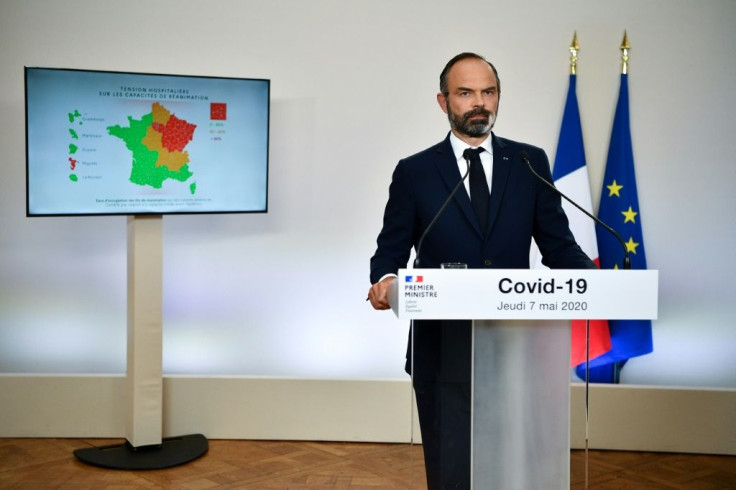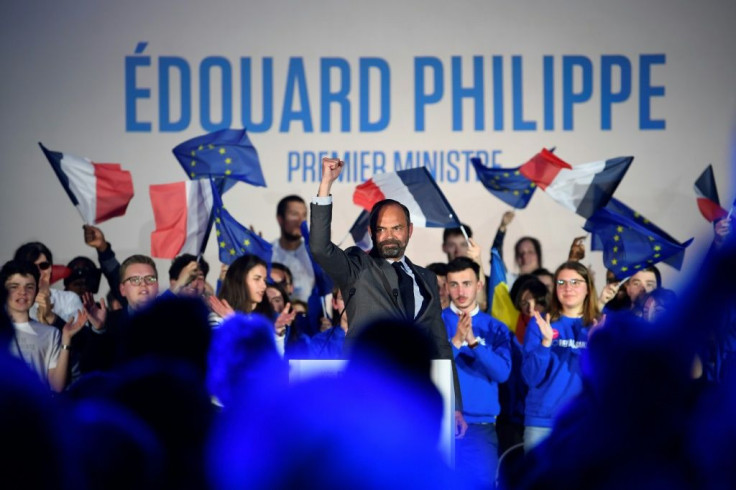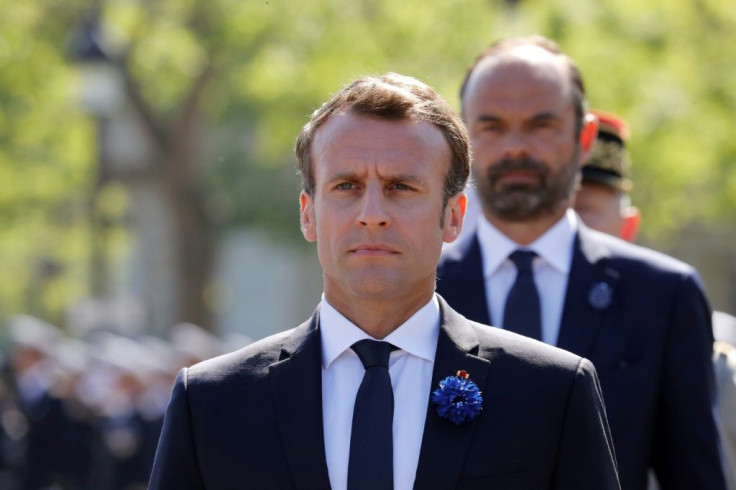Philippe: France's Unshowy But Popular PM Bows Out
Edouard Philippe served President Emmanuel Macron for three years as a loyal and unshowy prime minister, but his growing popularity put his future on the line.
Macron replaced Philippe on Friday with top civil servant Jean Castex in the wake of disappointing local elections, with observers unsure if the former premier will fade into the background or emerge as a rival to the president.
Philippe, then a member of the rightwing Republicans, was plucked from provincial obscurity as mayor of the Normandy port city of Le Havre to become premier after Macron won the 2017 presidential election.
Philippe admitted he met Macron only three times before the first round of that election, and of being "terrified" before installing himself in the premier's residence of the Hotel de Matignon.

But in recent weeks the profile of the measured Philippe has begun to outstrip that of his boss.
It has been Philippe, rather than Macron, who has waged battle on the political frontline both in this winter's strikes over pension reforms and now the coronavirus epidemic.
As Macron largely restricted his public pronouncements to televised addresses to the nation, it was left to his premier to provide regular updates as the outbreak worsened and then levelled off.

The premier's efforts were rewarded with a spike in popularity noted by polling agencies, even as Macron's early boost in the crisis eroded.
This created speculation that the president was none too happy to have a premier who risked stealing the limelight.
A poll by Harris Interactive-Epoka published last week showed that 44 percent of respondents had a favourable opinion of Macron while 51 percent were positive on Philippe, a jump of 13 points for the premier since the start of the epidemic.
His avowedly unspectacular and technocratic style won new fans during the extremes of the COVID-19 crisis, when he refused to sugar the pill and kept a sober and often sombre tone.
Central to tensions that reportedly exist between Macron and Philippe was the fact that his premier never became a card-carrying member of Macron's centrist Republic on the Move (LREM).

He left the Republicans as the right imploded following the fake jobs scandal that sank the presidential campaign of former premier Francois Fillon, but has resolutely stayed an independent.
Last Sunday, Philippe won a resounding victory in the battle to be mayor of Le Havre in his native Normandy, the post he held from 2010 to 2017, a win he described as an "act of confidence".
The LREM did not notch up a single major urban victory in the municipal elections, making Philippe's success as an independent even more jarring.
An Elysee aide said Friday that Philippe would now help to "consolidate the majority" of the LREM in parliament and prevent more defections of the kind seen in recent weeks -- the majority now holds only with support of minority groups.
But an Elabe-Berger Levrault poll this week indicated that 57 percent of French did not want Macron to jettison his premier.
Nicknamed "Doudou," Philippe's popularity surge resulted in the unlikely term "Doudoumania" entering the French media.
During the coronavirus crisis, people began to notice a white patch emerging on the left side of his beard, which Philippe revealed was caused by the skin condition vitiligo.
"Edouard Philippe -- the unknown who governs France," glossy current affairs magazine Paris Match said on its front cover this month, with a picture of the gangly 1.94-metre (6 feet 4 inches) premier in decidedly unfashionable chinos and sweater striding through the streets of Le Havre.
Philippe, who worked at a law firm and then as a lobbyist for state nuclear group Areva, supported the Socialists early in his political career before switching to the Republicans.
Belying his staid image, in his spare time Philippe has co-authored two thrillers and is also a keen boxer.
And those close to him say despite his somewhat dour public persona he is hilarious in private, with a talent for impersonations of senior politicians such as ex-presidents Valery Giscard d'Estaing, Jacques Chirac or Nicolas Sarkozy.
© Copyright AFP 2024. All rights reserved.




















